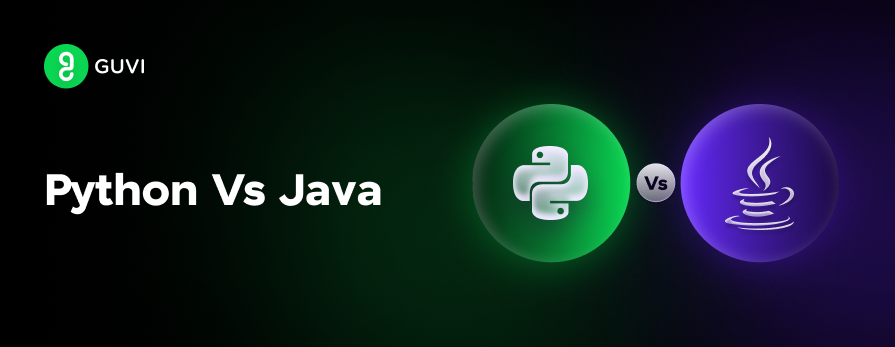
10 Reasons Why Java is Still Relevant in the Present Era
Oct 09, 2024 2 Min Read 740 Views
(Last Updated)
Despite being over two decades old, there are various reasons why Java is still relevant and remains a programming heavyweight in the present era.
Its robustness, versatility, and active development have ensured its continued relevance. Let’s explore the top reasons why Java is still relevant in the modern programming landscape.
Table of contents
- 10 Reasons Why Java is Still Relevant in the Present Era
- Enterprise-Grade Reliability
- Cross-Platform Compatibility (WORA)
- Thriving in Cloud Computing
- Active Language Evolution
- Extensive Libraries and Frameworks
- Security and Stability
- Strong in Big Data and AI
- Java in Android Development
- Job Market and Career Opportunities
- Future-Proof with Long-Term Support (LTS)
- Conclusion
10 Reasons Why Java is Still Relevant in the Present Era
Let us now see the 10 reasons why Java is still relevant in the present era:
1. Enterprise-Grade Reliability
Java is the go-to language for enterprise applications due to its reliability and scalability. Large companies, including banks, insurance firms, and government institutions, still trust Java to build secure, high-performance systems.
Its robust frameworks like Spring and Java EE enable developers to create complex, scalable solutions, keeping Java entrenched in the enterprise world.
2. Cross-Platform Compatibility (WORA)
Java’s core principle of Write Once, Run Anywhere (WORA) remains a crucial reason for its relevance. Java applications can run on any device with a Java Virtual Machine (JVM), making it ideal for cross-platform development. Whether it’s desktops, servers, or embedded devices, Java’s platform independence is a key advantage in 2024.
3. Thriving in Cloud Computing
Cloud computing is the backbone of modern application development, and Java is deeply integrated into this ecosystem. Java supports leading cloud platforms like AWS, Microsoft Azure, and Google Cloud, making it a prime choice for building cloud-native applications. With microservices architectures thriving in the cloud, Java’s Spring Boot framework shines for creating scalable, cloud-based systems.
4. Active Language Evolution
Java has undergone continuous improvements, with new releases every six months since 2017. These updates introduce modern features like records, sealed classes, and pattern matching, ensuring that Java remains competitive with newer languages. Java 17 and Java 21 (LTS releases) have added features that make it easier for developers to write clean, efficient code while retaining backward compatibility.
5. Extensive Libraries and Frameworks
Java’s ecosystem offers a vast array of libraries, frameworks, and APIs that speed up development and reduce boilerplate code. Popular frameworks like Spring, Hibernate, and Maven help developers build everything from simple web apps to large-scale enterprise systems. This rich ecosystem makes Java a powerful tool for tackling almost any software development challenge.
6. Security and Stability
Java is known for its robust security features, which is why it’s used in industries that require high security, such as finance and healthcare. Features like the Security Manager and sandboxing allow developers to restrict the execution of untrusted code. The language’s focus on backward compatibility ensures long-term stability for mission-critical systems that rely on older versions.
7. Strong in Big Data and AI
Java plays a significant role in big data and machine learning. Many big data frameworks, including Apache Hadoop and Apache Spark, are written in Java, making it essential for handling massive datasets.
In AI and machine learning, Java frameworks like DeepLearning4J provide powerful tools for building AI applications in enterprise environments, where performance and scalability are critical.
8. Java in Android Development
Although Kotlin is now the preferred language for Android development, Java remains relevant. A large portion of existing Android apps is still written in Java, and developers familiar with Java can easily transition to Kotlin. Java’s extensive libraries and tools continue to play a critical role in the Android ecosystem, making it indispensable for mobile app development.
9. Job Market and Career Opportunities
In 2024, Java developers are still in high demand across industries. Many enterprises continue to rely on Java for their backend systems, and as a result, Java job listings remain plentiful. With the growing use of Java in cloud computing, microservices, and big data, professionals skilled in Java are well-positioned for lucrative and stable careers.
10. Future-Proof with Long-Term Support (LTS)
Java’s LTS (Long-Term Support) releases, such as Java 11, Java 17, and the upcoming Java 21, provide a stable and reliable platform for businesses that prioritize stability.
These LTS releases allow companies to adopt modern Java features while benefiting from extended support and security updates. This gives developers confidence in Java’s longevity and continued relevance.
In case, you want to learn more about Java Full stack development and how to become one, consider enrolling for GUVI’s Certified Java Full-stack Developer Course that teaches you everything from scratch and make sure you master it!
Conclusion
In conclusion, Java’s staying power in the present era is undeniable. Whether it’s enterprise applications, cloud computing, big data, or Android development, Java remains a versatile and essential language.
Its continued evolution, extensive libraries, and active community ensure that Java is still a go-to choice for developers and organizations alike.






























Did you enjoy this article?